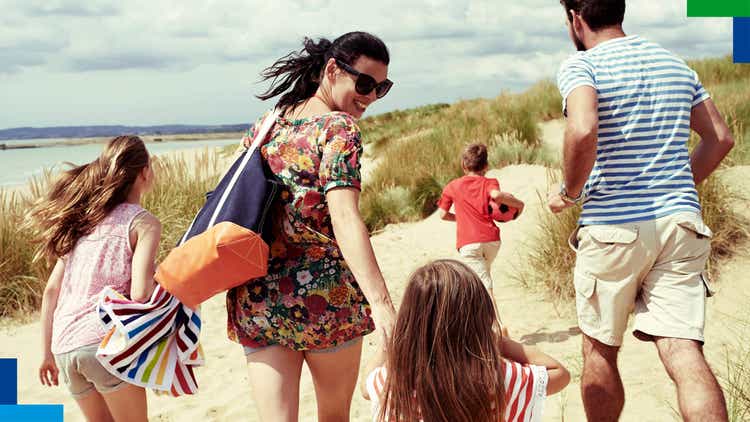Look after your body
Look after your body
A healthy lifestyle includes a balanced diet, moderate alcohol consumption, physical activity and not smoking. If you have psoriasis (Pso), these factors may have an even bigger impact on your health.
In addition to the treatment your doctor has prescribed,3 you may find that considering your lifestyle as a whole helps you.
Watch your diet
Did you know that there is link between excess weight and psoriasis?4 Being overweight may increase the risk of psoriasis, but if you already have psoriasis, reducing your body weight has been shown to improve the effectiveness of treatment and can reduce flare-ups.5 Excess weight can also make it difficult to treat Pso plaques in folds of skin.6
Some helpful hints on becoming a healthier you
Healthcare professionals recommend eating lots of fruit and vegetables, because they contain fibre, vitamins and antioxidants, and fatty fish.7
Try to opt for healthy fat, like olive oil, beans, whole grains and nuts and cut down on fried foods, sugar, fatty red meat and refined grains, like white flour and rice.7
If you drink alcohol, do so in moderation. Alcohol has been shown to stimulate production of proinflammatory cytokines, or proteins that cause inflammation in the body.8 This can cause flares and reduce the effectiveness of your psoriasis treatment.89
TOP TIP
“I used to let psoriasis stop me from going about my life,
but I refuse to let it get in the way anymore.”*
Quit smoking

Quitting smoking is good for your health,10 but do you know why stopping can help people with psoriasis in particular?
In people with a family history of psoriasis, smoking may trigger Pso genes to become active.11 Nicotine, found in cigarettes and e-cigarettes,12 changes the immune system, which may help explain this link.11 Smoking not only increases the risk of developing psoriasis,13 especially for long-term smokers,14 but the ingredients in cigarette smoke may even damage the body’s cells.11 This could be why smoking seems to aggravate Pso symptoms.1113
You may believe that smoking makes you feel more relaxed, but nicotine appears to make stress worse.15 In fact, while smoking may at first make you feel as if you’re unwinding, this is soon replaced by withdrawal symptoms and anxiety, and the need to smoke more to calm these feelings down.16 This may be why the stress levels of smokers are slightly higher than non-smokers15 - and stress is a common trigger for psoriasis flare-ups.11
Smoking is also said to negatively affect the benefits of certain treatments for psoriasis.13 Studies have found that biologic treatments for Pso didn’t work as well in some people who smoked as they did in those who didn’t, and smokers changed their treatment more often because it wasn’t working well for them.13
These are all some of the excellent reasons to focus on quitting smoking, but sometimes breaking a habit is easier said than done. You’ll find useful information about smoking cessation treatments online, but it’s also a good idea to get your doctor’s advice, as some methods may not be appropriate for you. For example, patches aren’t recommended for people with skin conditions, including psoriasis.17
Finally, you may find that you have more energy on quitting and want to exercise more,10 but sweating could irritate any psoriasis plaques you have.18 Consider having a cold shower after a workout to wash away the sweat and cool you down.18
Keep fit
Exercise brings many benefits, but if you have visible plaques or flaky or itchy skin,19 you may feel self-conscious or uncomfortable doing it. 2021 Exercise may, however, help you to destress and manage your weight, which could have positive effects on your skin.21
It’s important to find activities that work for you as you’re more likely to stick with them.22 If going to the gym isn’t your thing, have you thought about going for a walk or bike ride, dancing, whether alone in your kitchen or joining a group, or finding a video or app you can follow from the privacy of your home at a pace that is comfortable for you?
Try to wear loose, lightweight clothing that won’t irritate your skin and is breathable to wick sweat away.21 If you enjoy swimming, a thin layer of petroleum jelly can be applied to skin plaques beforehand to protect your skin.21 Whatever you decide to do to keep fit, please check with your healthcare professional before starting any new activity.22

Don't forget your skin and nails

Pso can affect both skin and nails, so make sure you pay special attention to yours.23 These days, we all try to wash our hands regularly, so make sure you moisturise well.24 Keeping your nails trimmed and using gloves to help you avoid irritants when doing chores or gardening is also a good idea.24
If you have Pso on your feet or toenails, make sure you protect them from possible injury, which can lead to flares, by wearing closed, roomy shoes with good cushioning.25 And if you’re out and about, make sure you protect your skin from the sun.26 Finally, while it may be tempting to have a good scratch if you have scalp psoriasis, please make sure you don’t.27
You may be interested in

Todas as pessoas são diferentes e cada um de nós tem uma história para contar.

Advice about dealing with the main psoriasis symptoms.

Descubra em que medida a psoríase pode estar a afetá-lo(a).
*Representative of patient experience